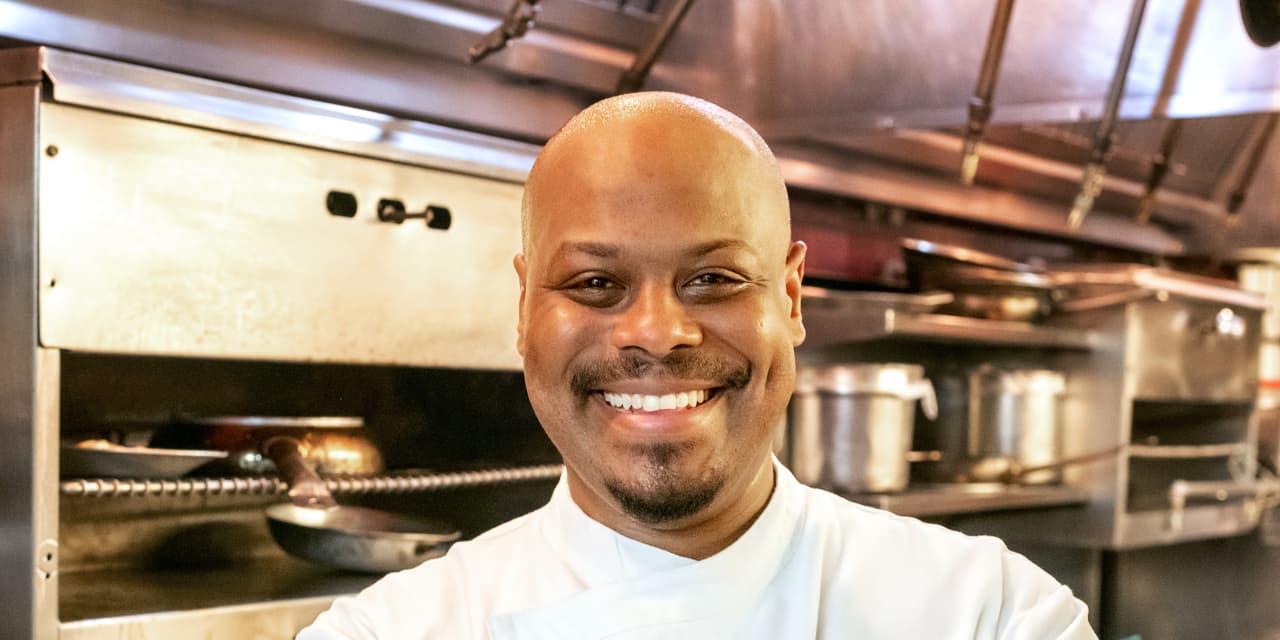Great food has come out of the kitchen in every home chef Preston Clark has lived in since he was a child.
From his hometown of New York City to the family’s subsequent homes in New Jersey, Los Angeles, and Virginia, the young chef absorbed the flavors from recipes made with love from both of his parents—he’s the son of the celebrated New York City chef Patrick Clark, the first Black chef in the country to win a James Beard Award—and he started cooking on his own at the age of 9.
Currently executive chef at celeb hot spot Lure Fishbar in Manhattan, part of the Mercer Street Hospitality group, Clark presides over its locations in New York City, Miami, and Chicago.
In 2019, the New York Times named him one of 16 Black chefs changing the landscape of American food.
Clark shared snapshots of his rich childhood with Penta, describing how his father shaped him as the man and chef he is today.
PENTA: What do you remember most about the food from your childhood?
Preston Clark: I remember my mother’s fried chicken. I remember pork chops and string beans with gravy. Smothered pork chops, curry pork chops. Sunday dinners when my father would cook. That was the day that he was off, so there was always a big bird or sometimes a turkey, sometimes ham. We would do crab, like a crab boil on the holidays. Some great, great, great meals came out of every place that we lived.
Your father has played a huge role in your life. What is one of your earliest memories of him at work?
He opened up the Odeon with Keith McNally in 1981, the year I was born. I remember hurting myself and asking for spinach because I thought spinach would make me strong, like how Popeye moves a chair or something crazy like that. I went into the kitchen, asking for sauteed spinach. The line cook or sous chef kind of looked at me sideways, like, “You want spinach?”
At what age did you start cooking?
At about 9, 10 years old, I started cooking breakfast. Bacon and eggs was one of my favorite breakfasts that my father would make for us just before we went to school. So I remember being a little upset a couple times where he wasn’t able because he was still sleeping because he had been working so late. So I took it upon myself to learn bacon, eggs, and a Thomas English muffin. It’s the breakfast of champions.
When did cooking become more of a career choice for you?
It became a little bit more serious when I was older.. I went to work at Tavern on the Green [in Central Park]. I was about 14, 15 years old. I was put on the pasta station. I had to do service. I trailed and chatted with the line cook. Once she saw that I could do it, she was like, “OK, I’m not doing it. You’re doing it.” She finally took it easy on me—a little bit. I liked moving fast and I liked being able to cook the stuff and I liked tasting it. From there, the passion just grew. I worked in Tavern’s kitchen every summer until I went to culinary school.
What influences from your father most resonate with you today?
When I was 16 years old, my father passed away. I am definitely a product of my father in all senses of the word. The mantras and the mindset and the ethics all come from him. That’s where I get my strength. My father used to say, “What you do now sets a precedent for what you can do later.” That persistence was something that was ingrained in me, from him, since a very young age. Without that persistence, without that determination, without that professional work ethic, I would not be where I am now at all.
How would you describe this work ethic?
If you fall down, get up and keep going. Teamwork and just going, going, going. Eventually you’ll get it. If you hone your skill and you don’t give up, eventually you’ll succeed.
Can you talk about how your experience today as a Black chef is different to the one your father had?
He was the first Black chef to win [a James Beard Award]. I’ve not won a Beard Award yet. I’ve been nominated. However you get there, it’s performance based. So if you can perform, it doesn’t really matter. That’s one of the cool things about the kitchen, while you’re always going to have nuances from different people, from different places, and different types of communication, in the end, it’s almost like a colorblind place because the final project is just making sure that we’re there for the guests.
This interview has been edited for length and clarity
Read the full article here




